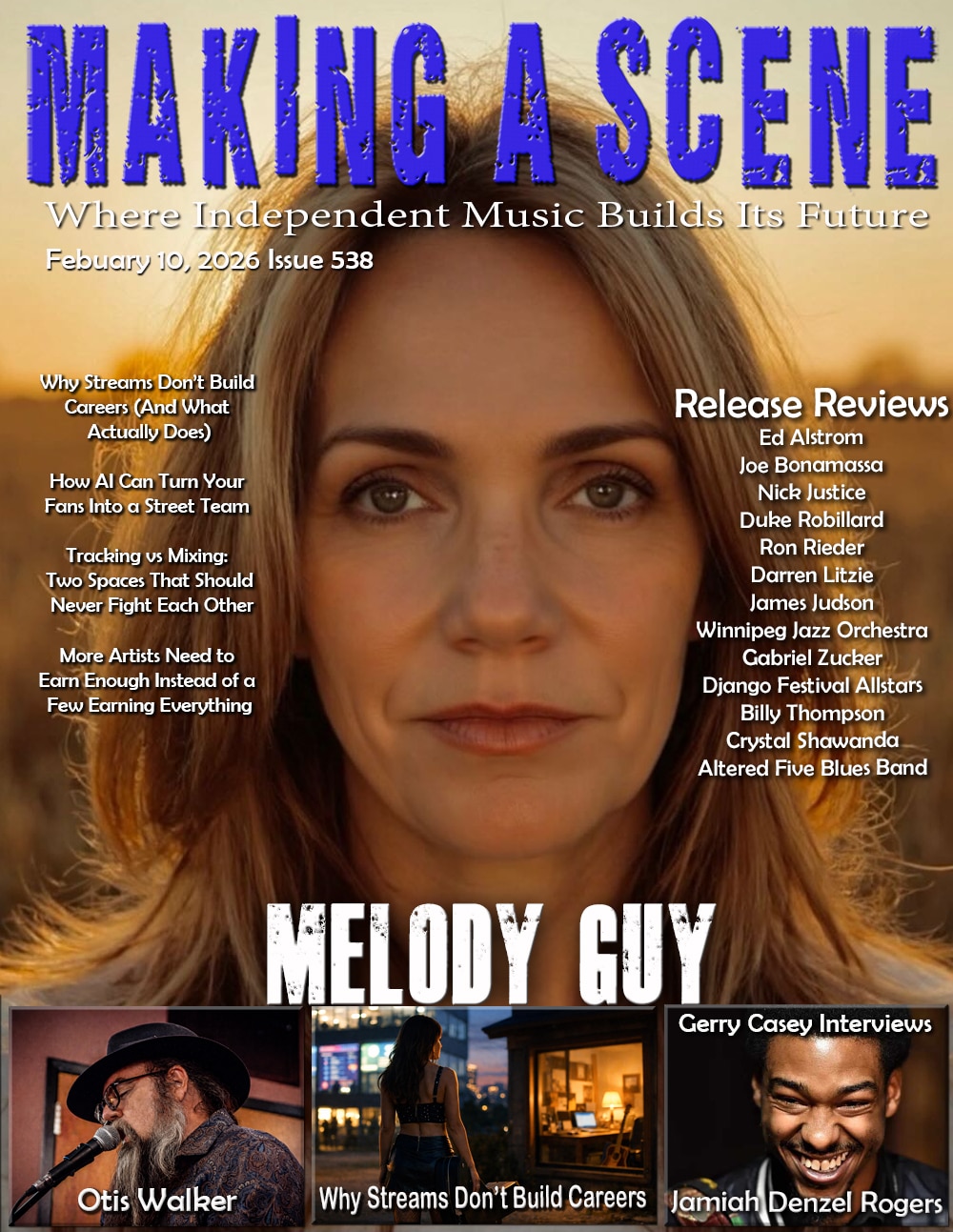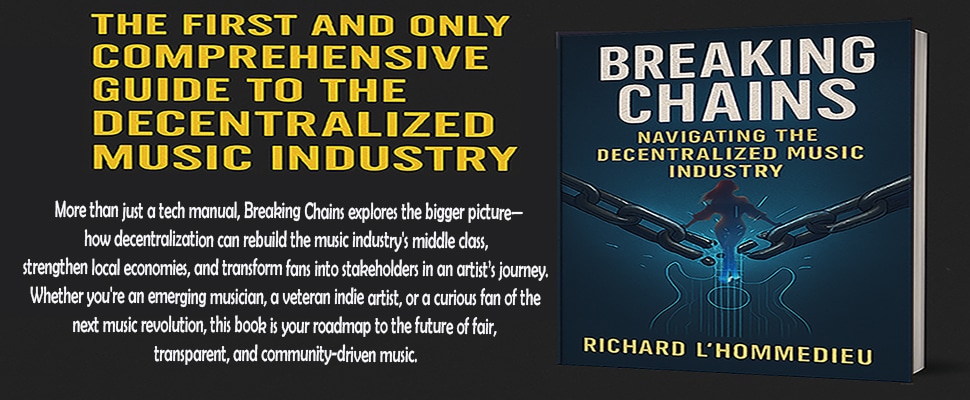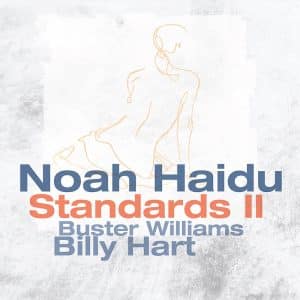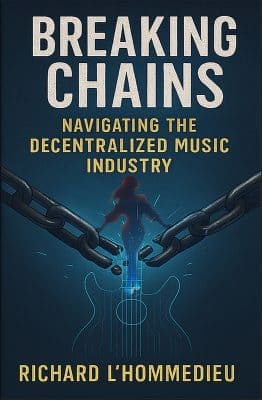Noah Haidu Standards II
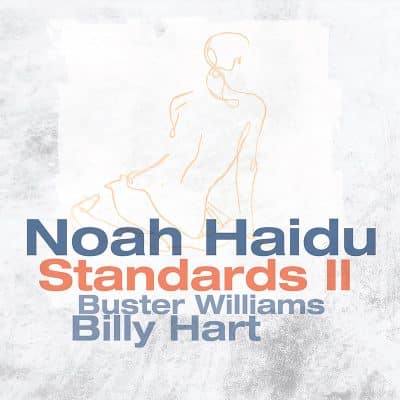 Noah Haidu
Noah Haidu
Standards II
Sunnyside
When jazz listeners think of Standard Trios, they likely gravitate toward the legendary Keith Jarrett’s Standards Trio or the long-running trio of Bill Charlap. Now with this second offering from pianist Noah Haidu, Buster Williams, and Billy Hart, we must make way for a respectful next entry in that conversation. While Charlap’s trio has been together for 25 years and Jarrett’s is untouchable, one could argue that two Haidu outings don’t stand up to those. Consider though that the bass-drum tandem of Williams and Hart has endured for five decades. Couple that with Haidu’s flexible, innovative ideas, his touch, and adept use of space and most importantly the chemistry and interplay these three have developed in just a short amount of time, and you have a more than worthy contender. All three pianists in this conversation are deeply grounded in the blues too, so they bear similarity there.
You’ll hear plenty of tension and release in this trio’s interplay, heightened by the fact that the recording session occurred on October 7, 2023, the day of the brutal Hamas attack that ignited the still on-going war. Haidu’s dad and his grandmother are Holocaust survivors, and his grandfather was murdered by the Nazis in a POW camp. The fact that Haidu could even commence this session with the myriad of emotions he must have been feeling is quite admirable. As a result, the typically hopeful feelings of “Over the Rainbow” become a bit mixed and ambiguous as the trio deconstructs the piece, first with Hart’s whirlwind attack on the kit and single notes from the pianist suspended over Williams’ arco lines. The gist of the melody doesn’t take shape until about the halfway point and again three minutes later in this ten minute plus rendition and is often presented in fragments throughout. Clearly, theirs is not a straightforward interpretation, setting the stage for the remaining six pieces.
In the trio’s hands, these standards are mostly large frameworks, conducive to group interplay and improvisation as heard in “Someone to Watch Over Me,” perhaps the most acute example of their acute use of space and minimalism. Hart is so delicate with his brushwork and Williams plucks his notes judiciously in counterpoint to Haidu’s floating lyrical lines before delivering his own melodious solo. Freddie Hubbard’s “Up Jumped Spring” has several sections, beginning with a series of chords and a heady rubato section before unfolding into swinging solos from each trio member over the course of almost twelve minutes, with Hart’s cymbal-focused one especially outstanding. “Obsesion” an Afro-Latin chestnut, is an unexpected choice in this repertoire but the trio renders it with aplomb rhythmically and lyrically.
The trio applies a light swinging tempo to “Days of Wine and Roses” featuring Williams’ elegant pizzicato statement. “After You’ve Gone” captures the trio in swinging form with Hart’s ride cymbal work and his unaccompanied solo again emblematic of his earning NEA Jazz Master recognition in 2022. Haidu is anything but minimalist here, with his nimble fingers all over the keys as the trio charges through with a balance of power and grace. Finally, we get the heaviest dose of the pianist’s feel for slow, smoldering blues in Ellington’s “I’ve Got It Bad (And That’s Not Good) with Williams improvising lines of his own and Hart returning to his trademark brushwork.
The trio proves once again that they can reshape and interpret these standards uniquely and as democratically as any trio playing today. Haidu is more than willing to share the spotlight with his elders. It’s a beautiful marriage of the explorative and traditional. And just two recordings in, it certainly seems to have legs into the future.
- Jim Hynes
BUY NOW
Buy Us a Cup of Coffee!
Join the movement in supporting Making a Scene, the premier independent resource for both emerging musicians and the dedicated fans who champion them.
We showcase this vibrant community that celebrates the raw talent and creative spirit driving the music industry forward. From insightful articles and in-depth interviews to exclusive content and insider tips, Making a Scene empowers artists to thrive and fans to discover their next favorite sound.
Together, let’s amplify the voices of independent musicians and forge unforgettable connections through the power of music
Make a one-time donation
Make a monthly donation
Make a yearly donation
Buy us a cup of Coffee!
Or enter a custom amount
Your contribution is appreciated.
Your contribution is appreciated.
Your contribution is appreciated.
DonateDonate monthlyDonate yearlyYou can donate directly through Paypal!
Subscribe to Our Newsletter
Order the New Book From Making a Scene
Breaking Chains – Navigating the Decentralized Music Industry
Breaking Chains is a groundbreaking guide for independent musicians ready to take control of their careers in the rapidly evolving world of decentralized music. From blockchain-powered royalties to NFTs, DAOs, and smart contracts, this book breaks down complex Web3 concepts into practical strategies that help artists earn more, connect directly with fans, and retain creative freedom. With real-world examples, platform recommendations, and step-by-step guidance, it empowers musicians to bypass traditional gatekeepers and build sustainable careers on their own terms.
More than just a tech manual, Breaking Chains explores the bigger picture—how decentralization can rebuild the music industry’s middle class, strengthen local economies, and transform fans into stakeholders in an artist’s journey. Whether you’re an emerging musician, a veteran indie artist, or a curious fan of the next music revolution, this book is your roadmap to the future of fair, transparent, and community-driven music.
Get your Limited Edition Signed and Numbered (Only 50 copies Available) Free Shipping Included
Discover more from Making A Scene!
Subscribe to get the latest posts sent to your email.
